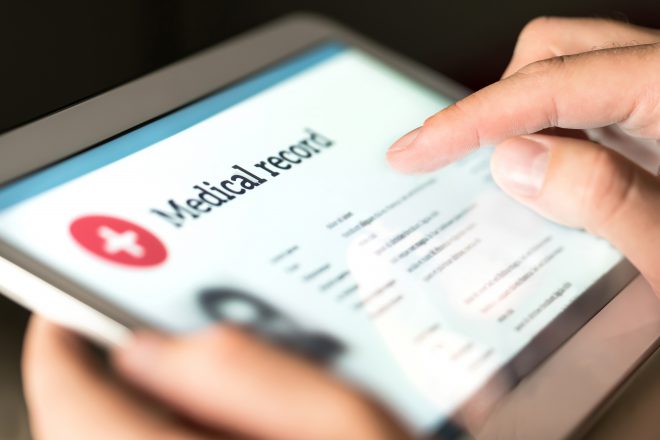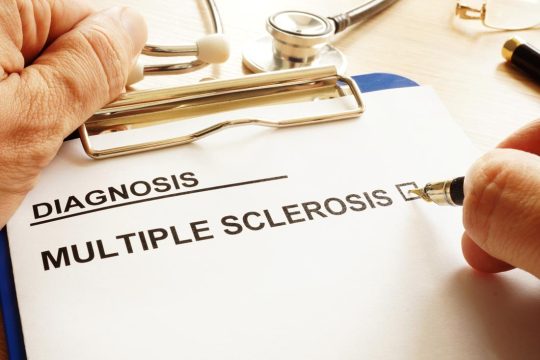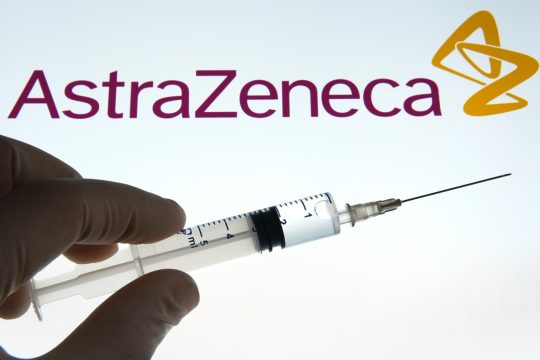Advertisment
IBD healthcare and patient-reported outcomes

An oral abstract session dedicated to patient-reported outcomes (PROs) in IBD included surveys from France and the Netherlands and from the multi-centre ICONIC study..
Written by Maria Dalby
..which signal that although many patients are happy with their doctors and treatments, there is still much to do to address concerns about side effects and loss of efficacy, improve access to auxiliary healthcare professionals, reduce presenteeism at work, and close the gap between patients’ and physicians’ perception of the suffering caused by living with IBD.
A survey among adult patients in IBD centres within the GETAID network showed that although patients for the most were satisfied with their doctor and their treatment, IBD continues to have a large impact on daily life, and many patients are concerned about side effects and loss of efficacy. Dr Maria Nachury (Lille University Hospital, France) presented the results of the survey which included a total of 2,011 patients across 42 secondary and tertiary centres in France and Belgium. The mean age of the respondents was 40 years; around two-thirds had CD and close to three out of four patients were treated with a biological agent – in contrast, only 8.5% were on an immunomodulator alone.
On a 10-point Likert scale, patients’ satisfaction with their doctor-patient relationship was 8.3, and global satisfaction with current treatment was 7.6. The self-reported adherence to current treatment was 9.1. On the same scale, the impact of IBD on daily life was scored at 5.2. Nearly half of patients reported being concerned about adverse events, and one third was concerned about lack of or loss of efficacy. Approximately 20% of patients had heard about biosimilars and 11% had rececived a biosimilar on one or more occasions. In addition to searching for information about the disease and treatments on the internet, most patients favoured their general practitioner as a source of information – only a minority of patients had participated in an IBD educational programme or accessed auxiliary healthcare services such as an IBD nurse or a psychologist. The one exception in this regard was that nearly half of the patients had seen a dietitian at some point.
Work productivity loss is a concern for IBD patients, and a study carried out in the Netherlands indicates that it is also a major driver of the healthcare costs of IBD. Dr Sara van Gennep (Amsterdam University Medical Center, the Netherlands) presented results from the WORK-IBD study, an ongoing survey in which CD and UC outpatients complete web-based questionnaires every six months during a two-year follow-up period. The aim of the study was to determine the prevalence of work productivity loss, identify predictors of severe work productivity loss, and estimate the associated indirect costs.
Out of a total of 1,590 invited patients, 510 provided eligible responses and were included in the study. Around one-fifth of the patients (19%) reported severe work productivity loss due to IBD, defined as a total absenteeism and presenteeism of 50% or more. Stratified by treatment, the rate of severe work productivity loss ranged from 5% among patients treated with 5-ASA to 58% among patients treated with ustekinumab. Ustekinumab was associated with the highest rate of severe work productivity loss of the biological therapies; the corresponding figure was 27% for both the anti-TNFs and vedolizumab. Multivariable regression analysis identified clinical disease activity (OR 6.3; 95% CI 3.3, 11.8; p<0.01) and active perianal disease (OR 3.4; 95% CI 1.4, 8.3; p<0.01) as significant predictors of severe work productivity loss. The mean annual indirect healthcare costs that could be attributed to work productivity loss amounted to 6,600 EUR; the lion share of these costs arose from presenteeism at work.
The annual indirect costs of work productivity loss ranged from less than 5,000 EUR among patients treated with 5-ASA to almost 13,500 EUR among patients treated with ustekinumab. The annual indirect costs for patients treated with anti-TNF therapy or vedolizumab were around 8,100 and 8,800 EUR, respectively. In patients with clinically active disease the annual indirect costs were on average 10,200 EUR higher than in patients with inactive disease; likewise the difference in indirect costs between patients with and without active perianal disease amounted to 8,500 EUR.
Next, Professor Subrata Ghosh (University of Birmingham, UK) presented the results of the ICONIC study which aimed to evaluate a novel tool for assessing the burden of suffering in patients with UC – an aspect which is not routinely captured by IBD-specific validated quality of life instruments. The Pictorial Representation of Illness and Self-Measure (PRISM) is a visual measure of disease-associated suffering, with lower scores representing greater suffering. A total of 1,804 patients were included across 244 sites in 33 countries. Patients completed PRISM together with a number of standard IBD patient-reported outcome questionnaires at baseline and at six, twelve, 18 and 24 months. Physicians also completed PRISM, without conferring with the patient. Overall, patients reported a significantly greater suffering on PRISM than physicians, with a significant increase in suffering from baseline after two years. Patients also reported a higher disease burden than physicians on the Simple Clinical Colitis Activity Index (SCCAI), which was significantly decreased after two years. Both patient and physician PRISM scores correlated well with other scales.
Lifestyle and exposomal factors are known to play a key role in IBD, either by having direct effects on the intestinal epithelium and mucosal immune cells or by exerting indirect effects via the microbiome. Professor Jost Langhorst (University Hospital Essen, Germany) presented study results which showed that a comprehensive programme of lifestyle modification can reduce stress and improve health-related quality of life for patients with UC, without any actual effect on clinical disease activity, faecal biomarkers or the microbiome. The programme consisted of a total of ten six-hour long sessions which included stress management and mindfulness, physical exercise, advice on following a Mediterranean diet, cognitive behavioural therapy techniques, and advice on alternative therapies and self-care strategies. A total of 97 patients were randomised to either the programme or a control group which attended a single workshop.
The primary endpoint was IBDQ scores after completion of the programme. Patients also completed the SF-36, HADS and PSS questionnares and a qualitative interview, and underwent clinical and endoscopic assessments. Patients who attended at least half of the programme achieved significantly higher IBDQ scores that controls, both overall and in the systemic and emotional domains. Patients in the lifestyle modification programme also achieved significantly better scores on the mental health index of the SF-36 and on the PSS, indicating reduced stress levels. In the qualitative interviews many patients reported feeling that participation in the lifestyle modification programme had helped them feel calmer and more confident about managing their disease.
In the concluding presentation in the IBD healthcare and PRO session, Dr April Naegeli (Eli Lilly & Co, Indianapolis, USA) reported the results of a cross-sectional insurance claim database study to compare the healthcare resource utilisation among UC patients who receive biologic therapy those who do not. More than 50,000 patients were included in the study; of these, just over 7,500 patients had been prescribed a biologic. Patients on biologic therapy were significantly more likely to be male, younger, and have comorbid conditions such as diabetes, psoriasis or ankylosing spondylitis. The healthcare resource utilisation data showed that biologic users were significantly more likely to use concomitant corticosteroids, immunomodulators and opioids, and also significantly more likely to see a gastroenterologist, visit the emergency department or be admitted to hospital.





